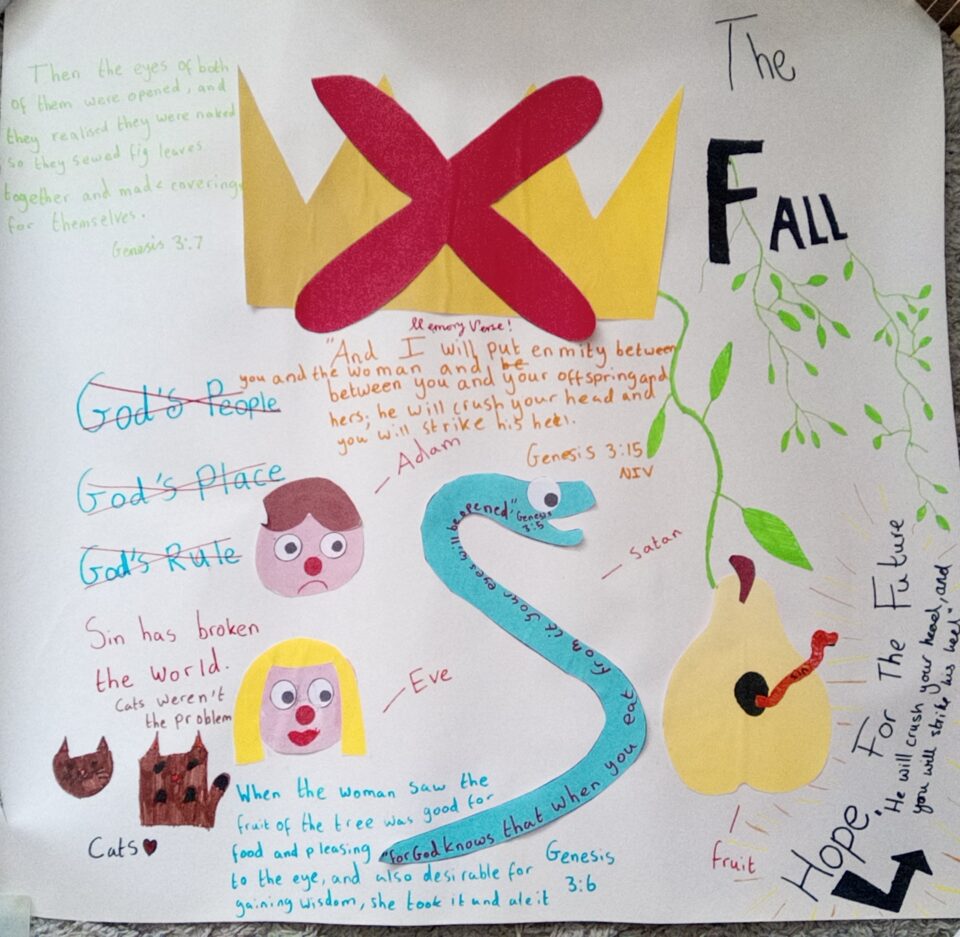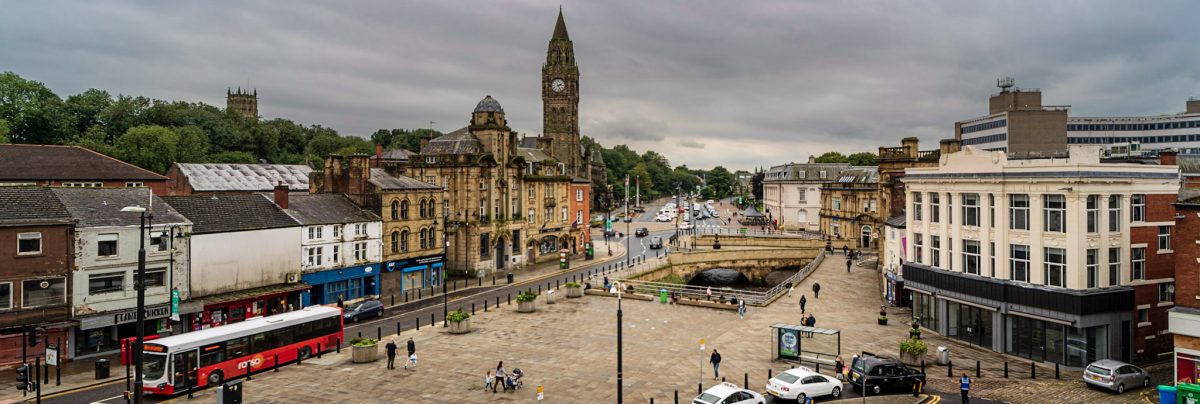
Last week in our whole Bible overview, we saw that creation gave us the perfect pattern of God’s people (Adam and Eve), living in God’s wonderful place (Eden), under God’s rule and blessing (especially the rule not to eat the fruit of the tree of the knowledge of good and evil).
This week we thought about why the world is no longer like that, which is when we get to Genesis 3 in the Bible and what we call the fall.
It’s when Eve is tempted to break God’s rule by the snake (Genesis 3:1-7), who we find out in the book of Revelation is Satan (Revelation 12:9; 20:2). She eats the fruit (not necessarily an apple, hence the pear in the picture!), as does Adam, and so everything in the perfect pattern of creation is broken.
The death that God promised as judgement is applied. Physically all humans now die and spiritually we are all born dead (see Ephesians 2:1-3). One of the devastating features of the rest of Genesis is that (nearly) everyone dies, made clear in genealogies that are interspersed throughout (e.g. Genesis 5). Furthermore, our relationship with God is broken, we are no longer his people and no longer under his rule. Of course, God still rules all the word, but we try to reject that rule. We rebel against him and try to take charge ourselves – which is pretty much the definition of sin. Sin doesn’t just bring death and a broken relationship with God though. We see that humans relationships are broken and the idyllic picture of marriage in Genesis 2 becomes a battleground in Genesis 3 (Genesis 3:16). And even the creation itself has been broken, as man must now deal with thorns and thistles in the struggle to survive (Genesis 3:17-19). What a contrast to the plenty of idyllic Eden.
The next few chapters of Genesis are pretty devastating. In Genesis 4 we have Cain murdering Abel. In Genesis 6 things are so bad that God floods the earth to start again, saving only Noah and his family. At the start of the chapter, God describes people in the following way:
The LORD saw that the wickedness of man was great in the earth, and that every intention of the thoughts of his heart was only evil continually.
(Genesis 6:5 ESV)
But that doesn’t sort things out. It’s not long until Noah and his family are sinning (Genesis 9:20-29). And then we have humanity once again trying to grasp at heaven in building the tower of Babel (Genesis 11). This is no longer God’s people, sin has wrecked God’s place and they are living in rebellion against his rule, so certainly not experiencing his blessing!
Sometimes people wonder why the world is like it is. There are so often glimpses of wonder, beauty and good. And yet everything is tinged with sadness, brokenness and horror. It’s not so fashionable to say that you and I are the problem, but we are. The Bible is clear:
For all have sinned and fall short of the glory of God.
(Rom. 3:23 ESV)
And that sin makes the world a hard place to live in and people often difficult to deal with. Most importantly, it means we stand in conflict with our creator God, facing judgement, death and hell.
It may not be comfortable, but I think this is the only compelling explanation for the world we live in with it’s wars, disaster, broken relationships, violence and pain. But the question is: Is there any hope?
Well in one sense that’s the story of the rest of the Bible as God restores his people, place and rule for their blessing in Jesus. There are some little hints even in Genesis 1-11, like the promise of the defeat Satan and so evil by one of Eve sons (Genesis 3:15). And also the one man in the genealogies who doesn’t die, Enoch (Genesis 5:24). The grace of God will act to defeat evil and sin and bring eternal life.
God starts that work with Abram in Genesis 12. But that’s for next week…
